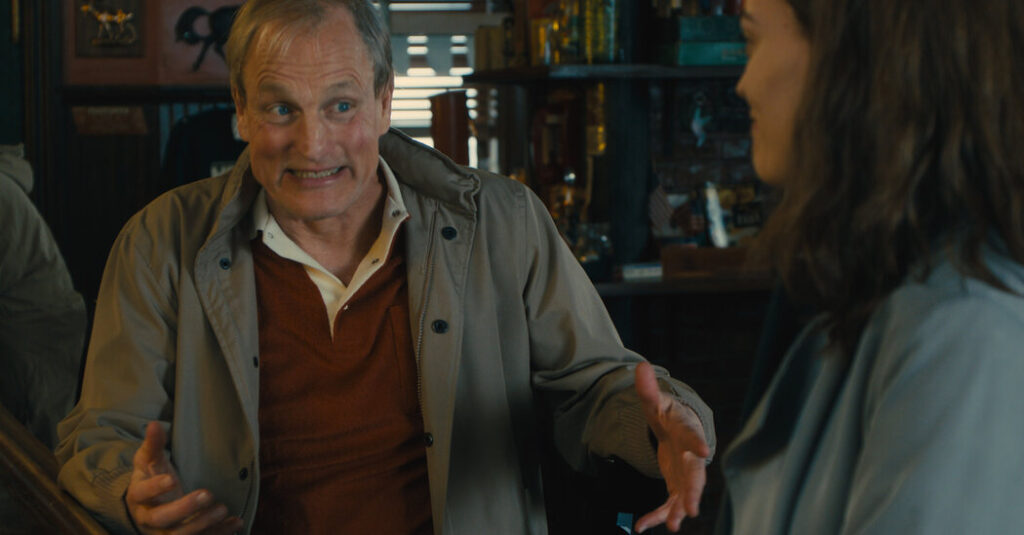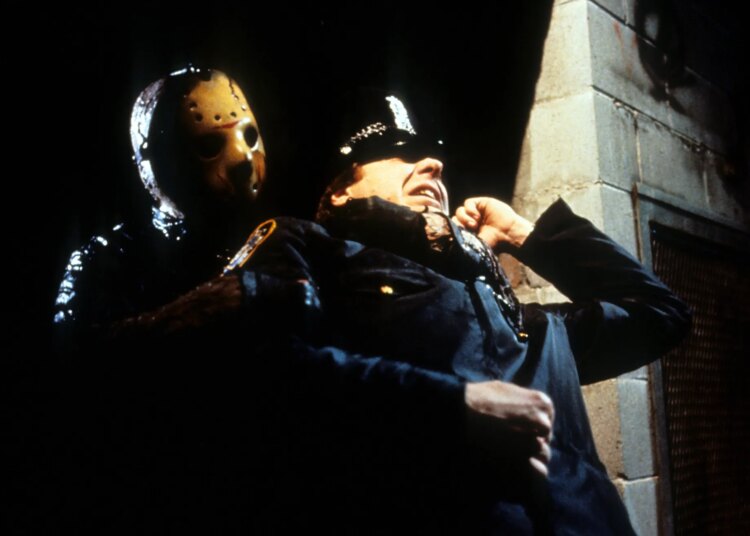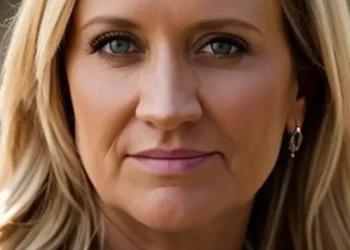In this year’s crop of fall movies, Hollywood is working through some serious daddy issues. Between the beleaguered father of “One Battle After Another,” the absentee pops of “Sentimental Value” and “Jay Kelly,” the wretched one of “Ella McCay” and the grieving patriarchs of “House of Dynamite” and “Hamnet,” this season is a rich time to examine fatherhood on film. Not just because the father-child relationship is the emotional spine of so many movies right now, but also because of what these portrayals have to say about being a good (or bad) dad.
Guillermo del Toro, the director of “Frankenstein” — an adaptation of one of the most influential father-son stories ever — articulates why the bond is endlessly fascinating. Fatherhood “is a mystery and a burden both,” del Toro said. “It takes awhile for you to untangle your father from a figure to a human being. And by that time you start realizing that, you have also become very totemic to your own kids.”
The bumbling burnout Bob Ferguson in the Paul Thomas Anderson action drama “One Battle After Another” in many ways subverts traditional notions of what a father should be: Bob (played by Leonardo DiCaprio) becomes the primary caregiver after he’s deserted by his partner, and he dissolves in tears over the high school success of his daughter, Willa (Chase Infiniti). His brain may be addled with weed and booze, but his heart is pure, uncut love.
“Bob and Willa’s relationship is so rich because of their imperfections, not shying away from what makes them human,” Infiniti said via email. “In my eyes, Bob’s ability to love out loud and standing by to raise Willa is what makes him a good father.”
His wobbly vulnerability is the polar opposite of what men of a certain generation were taught: to suppress their emotions and project strength at the cost of true connection.
Scott Cooper, the writer-director of “Springsteen: Deliver Me From Nowhere,” felt this deeply with his drama, about Bruce Springsteen’s making of the 1982 album, “Nebraska,” and his fraught relationship with his unstable father, Doug. “Doug and Bruce come from this generation of men who were taught to work and not feel, who couldn’t, and in most cases, wouldn’t give voice to their pain,” Cooper said. The movie’s climax comes not when “Nebraska” is released, but when Springsteen breaks down in a therapist’s office, finally seeking help when the darkness he inherited from his father becomes too much to bear.
Doug is played by Stephen Graham, who drew from his experience with his own stepfather. “He knew me from when I was a young boy,” said Graham, no stranger to playing gruff dads, as in his Emmy-winning turn in “Adolescence.”
“His dad was never around, so we kind of learned together” about fatherhood, he said, then paused, tearing up. “I constantly say to him, ‘Look, I’m here for you just as much as you are for me. I want you to know you have someone to talk to.’ And our relationship is the most beautiful relationship.”
For “Ella McCay,” the writer-director James L. Brooks created a philandering father role for Woody Harrelson. “Good old dad was a bad guy,” Brooks said. When “you had a father like mine,” he added, parenting “doesn’t come naturally to you.”
In one of the most memorable scenes in “Highest 2 Lowest,” the music mogul David King (Denzel Washington) confronts Yung Felon (ASAP Rocky) in a recording studio, repeatedly asking the aspiring rapper during a verbal showdown, “Where is your father?” The question “speaks to the multitudes of young men who grew up without a father in the house,” said the film’s director, Spike Lee. “It can have a detrimental effect on young Black boys, young Black minds. That was not scripted. That was Denzel’s genius.”
The therapist Terry Real, who has written several books about male depression, marriage and loneliness — and whose clients have included Springsteen — said it was precisely this tension between masculinity and connection that causes so many men, and by extension, fathers, to struggle. “The essence of traditional masculinity is invulnerability, and the problem is that we humans connect through vulnerability,” he said, adding that in his practice and onscreen, many men are trying to heal a wound. “You leave your wife and kids, and you go off and fly close to the sun and think they’re going to love you because you’re a stellar breadwinner or performer. Meanwhile, your wife and kids are sitting home going, ‘Where the hell’s Daddy?’”
More than a few films explore that formerly female-coded problem of work-life balance. “Jay Kelly,” directed by Noah Baumbach, stars George Clooney as an aging A-lister who chased professional success at the expense of his relationships with his now-grown daughters. Emily Mortimer, who appears in the film and co-wrote the script with Baumbach, explained in an email that “the movie is saying that getting parenting right is difficult and that getting life right is difficult. And that when you are very good at what you do, and the world rewards you for it, it might be easier and less complicated to spend most of your time doing that than it is to face the messy business of being an ever-present parent.”
“Sentimental Value,” from Joachim Trier, hinges on the relationship between Gustav (Stellan Skarsgard), a faded director who left his young family to make his movies, and his two adult daughters, Nora and Agnes (Renate Reinsve and Inga Ibsdotter Lilleaas), who are still dealing with the fallout from his absence. Gustav reconnects with them after their mother’s death, but Nora, a stage actress, seethes with resentment. Gustav offers her a part in his next movie instead of addressing their past.
He “sublimates his need for contact through art,” said Trier, who is the father of two young children and felt a pull toward the film’s themes. As a man and an artist, he said, “I want to make something more tender and emotionally engaged because I need it myself. I need to tell my kids there’s hope that we can talk together and without me being ashamed.”
Set centuries in the past but startlingly current, Chloé Zhao’s drama “Hamnet” sees a young William Shakespeare (Paul Mescal) torn between his work life in London and his home life with Agnes (Jessie Buckley) and their young children in Stratford-upon-Avon. “I think ultimately he would have been a worse father had he stayed around in Stratford,” Mescal said. “Whenever he’s with his children, we see him totally present. And when he’s warring with himself because he doesn’t have a kind of creative outlet, that’s when he’s most absent.”
Shakespeare’s stresses culminate in the devastating loss of a son to sickness, and fathers grappling with grief or impending loss is another theme in this season’s movies. In “The Lost Bus,” directed by Paul Greengrass, Matthew McConaughey plays Kevin McKay, a bus driver who must navigate 22 children and their teacher to safety through the 2018 Camp Fire in California. McConaughey’s real son Levi plays Shaun, Kevin’s estranged son, who loses contact with his father during the deadly blaze. Kevin “was too late for his own father,” McConaughey said. “And he’s about to be too late for his son without another second chance.”
One of the most haunting characters in Kathryn Bigelow’s “A House of Dynamite” is the defense secretary, Reid Baker, played by Jared Harris. Still devastated by the recent death of his wife, Baker finds himself helpless at the prospect of also losing his daughter, Caroline (Kaitlyn Dever), who lives in Chicago, the potential target of a nuclear strike. “The sort of buttoned-up, suck-it-up idea of what it means to be male is now considered to be deeply unhealthy,” said Harris, who likened his stoic character to an iceberg “that is 90 percent below the waterline.”
At the moment, “unhealthy” doesn’t even begin to describe where the current state of masculinity lies for some. “The most vile aspects of traditional masculinity are on the rise, and being celebrated shamelessly,” Real said. Cooper added, “There is a loneliness epidemic among men now of all generations. People aren’t connecting in ways that they should.”
Real said the more vulnerable depictions of fathers in current films gave him hope. (Others this season include Clint Bentley’s “Train Dreams,” Ronan Day-Lewis’s “Anemone” and Max Walker-Silverman’s “Rebuilding.”) “The heart and soul of these movies is about the struggle for reconnection,” Real said, “men trying to figure out how to connect for their children,” which is what he said he saw clinically as well.
It’s a concept that McConaughey, a father of three who often brought his family and set up schooling for them on location, took to heart. “I got counseled by a lot of older men who were fathers who were in my business,” McConaughey said, “And it’s either your kids get to spend more time with their friends, or they spend time with their dad.” All the actors, he said, chose to let their kids stay home when they left town for work. “And 100 percent of them said if they could do it over again, they’d do the opposite.”
The post Fatherhood on Film: Dad Is Having a Rough Time Onscreen This Season appeared first on New York Times.




